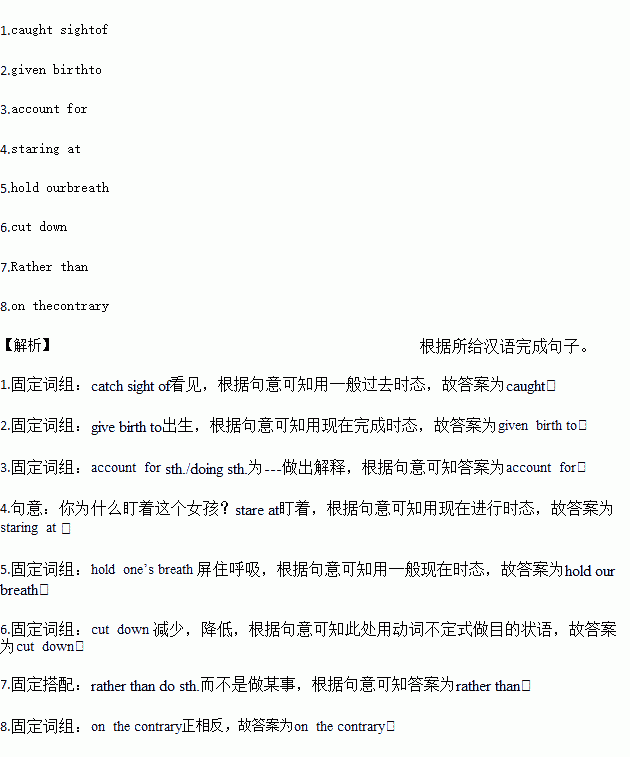题目内容
1.I ____________ ________________ ________________ her getting on the bus when I came out of the bookstore.
我从书店出来时看见她上了公共汽车。
2.Jane’s mother has just ____________ ______________ _____________ twins.
简的妈妈刚刚生了一对双胞胎。
3.You have to ____________ _____________ losing such a large sum of money.
丢了这么一大笔钱,你务必解释清楚。
4.Why are you ____________ _____________ the girl? You are making her more and more nervous.
你为什么盯着那女孩看?你让她越来越紧张了。
5.We ____________ _____________ ____________ when listening to her song.
我们屏息听她唱歌。
6.The workers are doing all they can to ____________ _____________ the accident rate.
工人们正在尽一切努力降低事故率。
7.____________ _____________ risk breaking up his marriage he told his wife everything.
他唯恐婚姻破裂,把一切都告诉了妻子。
8.He is not selfish; ____________ _____________ ____________, he is very noble and generous.
他并不自私,恰恰相反,他是一个非常高尚而又慷慨的人。
 阅读快车系列答案
阅读快车系列答案
